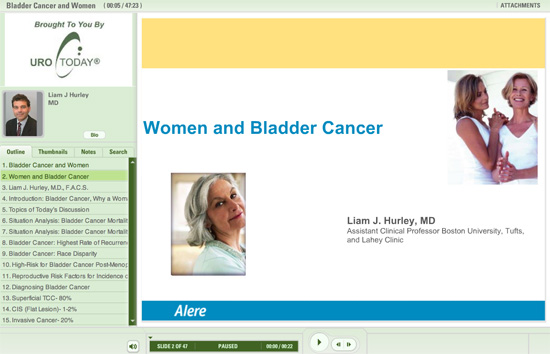When it comes to the documented 40 percent effectiveness of PSA testing in preventing death from prostate cancer, neither the American Cancer Society nor the discoverer of the PSA protein, Richard Ablin, are telling the public the complete story.
"The American Cancer Society is a 'false prophet' when it comes to telling the truth about the effectiveness of the PSA test," said ZERO's CEO Skip Lockwood. "Dr. Otis Brawley disregards scientific data about the value of the PSA test in saving lives. In fact, his views at a recent medical conference were vigorously challenged by physicians and researchers in attendance."
"Dr. Brawley seems more concerned about sex than saving lives. He's obsessed with the side effects of treatment rather than a solution for saving lives. He wants you to trust him instead of the 30,000 urologists in the U.S. and gamble you're not among the thousands of men who die each year with aggressive prostate cancer tumors," said Lockwood.
Lockwood acknowledges that the PSA test, like the mammogram, is not perfect.
"No one disputes that the PSA test cannot distinguish slow-growing tumors from rapidly growing ones, yet no one disputes that the PSA test is still the best tool available for early diagnosis and prompt treatment for prostate cancer.
"The long-term solution is to discover a new biomarker for prostate cancer without false positives or negatives and one that determines who has a life-threatening disease and who doesn't.
One of the nation's leading experts on prostate cancer, Dr. William J. Catalona of Northwestern University, commented, "Although the PSA test is not perfect, it is effective in identifying men at high risk for prostate cancer and for detecting it early."
The PSA test, the most prevalent method in use today for prostate cancer, has saved thousands of lives. The PSA test and advances in treatment have led to a 40 percent reduction in prostate cancer deaths since the mid-1990s, according to the National Cancer Institute. Because of the PSA test, 90 percent of all prostate cancers are now discovered before they spread outside the gland, according to the American Cancer Society's own data.
Dr. Patrick C. Walsh, distinguished professor of urology at Johns Hopkins University noted, "Because prostate cancer produces no symptoms until it's too far advanced to cure, as appropriate, men should have a PSA test and examination. Until an alternative exists, prostate cancer testing is the best option we have to allow men to make an informed decision."
Despite misleading claims by the ACS, the value of early detection through PSA testing is supported by more than a dozen leading U.S. organizations.
These include the American Urological Association, National Comprehensive Cancer Network, Prostate Cancer Foundation, Prostate Cancer Research Institute, Malecare Prostate Cancer Support, Men's Health Network, National Alliance of State Prostate Cancer Coalitions, Prostate Cancer International, Prostate Conditions Education Council, Prostate Health Education Network, The Prostate Net, Us TOO International Prostate Cancer Education and Support Network, and Women Against Prostate Cancer.
This is not the first time that the ACS has been sharply challenged. Claims that their views are based on "scientific evidence" were disputed as recently as late last year (and more recently, at the 2010 Genitourinary Cancers Symposium held last week).
ACS became embroiled in a firestorm of controversy last October by seeking to change its guidelines that women did not need an annual mammogram until age 50, instead of 40. ACS quickly backed off after an outcry from the public and health and government officials.
"The only difference between the PSA test and mammograms is there aren't millions of men who will stand up to the claims being peddled by Brawley and the American Cancer Society," Lockwood said.
Contrary to ACS claims, medical data suggest mammograms and PSA testing are effective. Based on data by the U.S. Preventive Services Task Force (USPSTF), mammography screening has led to a 15 percent reduction in breast cancer deaths. USPSTF also references an ongoing screening study where early detection (using the PSA test) has so far reduced prostate cancer deaths by 20 percent.
"This concerted agenda by ACS and Mr. Ablin, both in their timing and their message, purposely fails to disclose all of the facts about PSA testing. Mr. Ablin in particular should be pleased that his discovery of PSA has led to a 40 percent reduction in prostate cancer deaths."
Similarities between breast and prostate cancer data in the U.S. are striking. Each is the most frequently diagnosed noncutaneous cancer and the second leading cause of cancer death for their respective gender. In 2009, new cases of each cancer were at about 194,000. One in six men is struck with prostate cancer annually; for breast cancer, it's one in eight women.
Source: The Project to End Prostate Cancer
PSA Test Reduces Prostate Cancer Deaths By 40%








